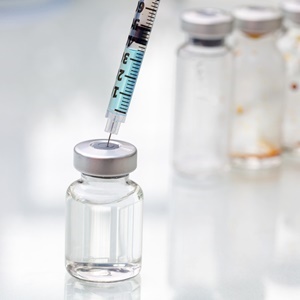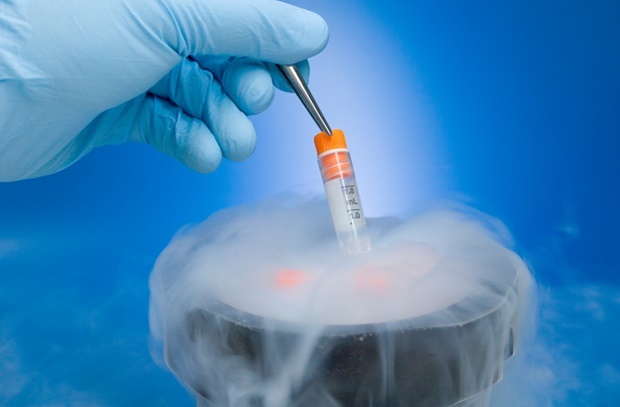
Vaccination is invariably a tearful, teeth-gritting ordeal for kids, and the immunisation schedule demands numerous doses. But it’s all worth it: by age 13, children are protected against killers like polio and TB.
Or are they?
If vaccines are not kept strictly at the right temperature, they will not work. There is growing concern internationally and in South Africa that many healthcare providers are unaware they are administering vaccines rendered useless through inadequate refrigeration in domestic or “bar” fridges.
The problem can be addressed, however, through regular “temperature mapping” of fridges, which is now a requirement of the Pharmacy Act.
Correct temperature crucial for fragile vaccines
Vaccines are highly effective – if stored correctly.
“Vaccines are very temperature-sensitive, and must be stored within specifications,” says Dr Melinda Suchard, Head of the Centre for Vaccines and Immunology at the National Institute for Communicable Diseases.
Certain vaccines are particularly fragile.
“Live vaccines (such as for measles),” says Suchard, “may lose potency if stored at too-high temperatures. Diluent [liquid mixed with some vaccines] may also be a problem if it’s stored too cold and accidentally freezes. Vaccines for tetanus, human papilloma virus, pneumococcal disease and rotavirus, for example, are destroyed by accidental freezing.”
Health professionals may not realise they are administering an ineffective vaccine. The Centers for Disease Control and Prevention (CDC)’s Vaccine storage & handling toolkit states that when some vaccines accidentally freeze, there is no visual evidence this has occurred.
A recent review of research on temperature variations during refrigeration by the United States’ National Institute of Standards and Technology showed that 13.5% of vaccines get accidentally frozen.
Domestic or ‘bar’ fridges may be inadequate
The CDC warns against using domestic or bar fridges to store vaccines, and recommends continuous temperature monitoring to avoid vaccine damage.
Dr James Southern, Advisor to the Medicines Control Council (MCC), states that vaccines should be stored between 2C°and 8°C.
“Many routine domestic refrigerators run at above this, some even at +15°C in hot weather.
"This shortens a vaccine’s overall shelf-life. Some vaccines are reasonably stable up to 25°C, but only for short excursions, up to an hour perhaps. Live vaccines are less stable, but they’re freeze-dried for extra protection.
"One dangerous practice is reconstituting freeze-dried vaccines, then returning them to the fridge, or leaving the vial on the bench for a while. They’ll usually be stable for a couple of hours but then rapidly lose potency. Bright light can also damage potency.
“Replacing multi-dose vials in the fridge after removing a few doses is also risky. Theoretically they should be fine for a week or more, but any contamination or exposure to warmer temperatures can damage them.
iStock
“Specially designed vaccine fridges are recommended but probably impractical for small practices.
Fridges failing to meet storage standards
Douglas Siepman, CEO of 5nines, which conducts temperature compliance monitoring, reckons that around 90% of the domestic refrigerators they have analysed failed to meet vaccine storage standards.
“A single temperature monitor or probe, even alarmed, may provide a false sense of security,” says Siepman.
He warns that such a probe placed in the middle of the fridge may indicate a suitable temperature range, but areas higher up nearer the freezer compartment may be too cold, whereas lower down in the vegetable bin, for example, may be too warm.
There can be a 11-12°C range between different points in a fridge, says Siepman.
He contends that each fridge has its own “temperature profile”, and the only way to ensure this remains within range is through regular temperature mapping, which involves recording heat variations in different parts of a storage system,
“I agree that laboratory fridges are overkill for the average practice or dispensing pharmacy (lab fridges can cost R25 000 – R75 000,” says Siepman.
“But the problem isn’t necessarily solved by purchasing a new domestic refrigerator; they are just not suitable.”
He adds that there are locally produced refrigerators available, such as PharmaGuard, which retail at around R10 000 and have proved suitable in performance qualification studies.
Updated storage regulations: are health professionals complying?
In February 2015, the Pharmacy Act was amended to require that anyone storing, distributing or administering vaccines must use appropriate storage areas and temperature monitoring instruments, and conduct regular checks, including annual temperature mapping.
Experts Health24 approached on this issue were uncertain as to how well health professionals are adhering to the stricter regulations.
Dr Melinda Suchard says that, “MCC conducts inspections of pharmacies and has powers of inspection of dispensing practices, but my understanding is there aren’t enough inspectors for routine inspections.
"So unless there is misconduct reported, it will go uninspected.”
Mrs Lee Baker, Managing Director and Medicine Information Pharmacist at the Amayeza Information Centre says, “I’m not aware doctors’ practices get inspected; I know clinics do. Fortunately many heat-susceptible vaccines now have a vial monitor on their label that tells users whether the cold chain has been broken.
"However, we don’t have vial monitors for vaccines that shouldn’t be frozen.”
The following questions are useful for vaccine providers to ask themselves to achieve compliance, and patients have the right to know the answers too:
1. Do you have an automated temperature monitoring system that warns when the temperature goes out of the safe range?
2. Can you access a record confirming the refrigerated product has not been out of the set temperature range in the past 24 hours?
3. Have you performed a temperature mapping profile of your refrigerator within the last year?
4. Has your temperature measuring equipment been calibrated to certificated standards within the last year?
Read more:




 Publications
Publications
 Partners
Partners












